DOWNTON ABBEY: A NEW ERA (2022)
A film crew arrives to make a movie at Downton Abbey while the Grantham family receives news of an unexpected gain in France
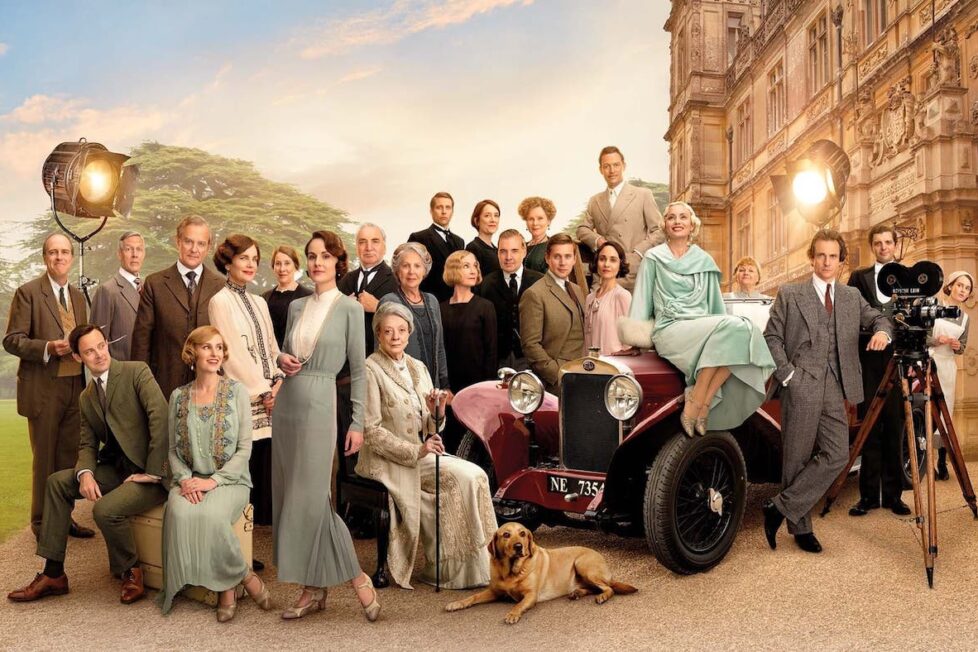
A film crew arrives to make a movie at Downton Abbey while the Grantham family receives news of an unexpected gain in France


The titular “new era” of this second Downton Abbey film has manifold meanings, ranging from life transitions for several major characters to the arrival of ‘the talkies’. Yet what’s most important, in the Downton philosophy, isn’t the nature of any particular upheaval but the way people cope with it, and the balance they strike between accepting the new and preserving the old.
Here, two different groups of characters have two different problems to contend with, and as a result the storyline is almost completely bifurcated in stark contrast to its predecessor Downton Abbey (2019), where small subplots revolved around a single main narrative. (Both are based, of course, on the long-running ITV drama series.)
The year is 1928 or 1929 (neither seems to tie in entirely satisfactorily with internal evidence, but it doesn’t matter). The bigger significance of the timing for us is that the Great Depression is just about to hit, naturally unbeknownst to the film’s many characters; the immediate significance for them is that talking pictures are just taking off, and so a film currently being made at Downton is converted into a “talkie” halfway through production, creating difficulties for its existing cast and new opportunities for both the great and the humble at the Abbey.
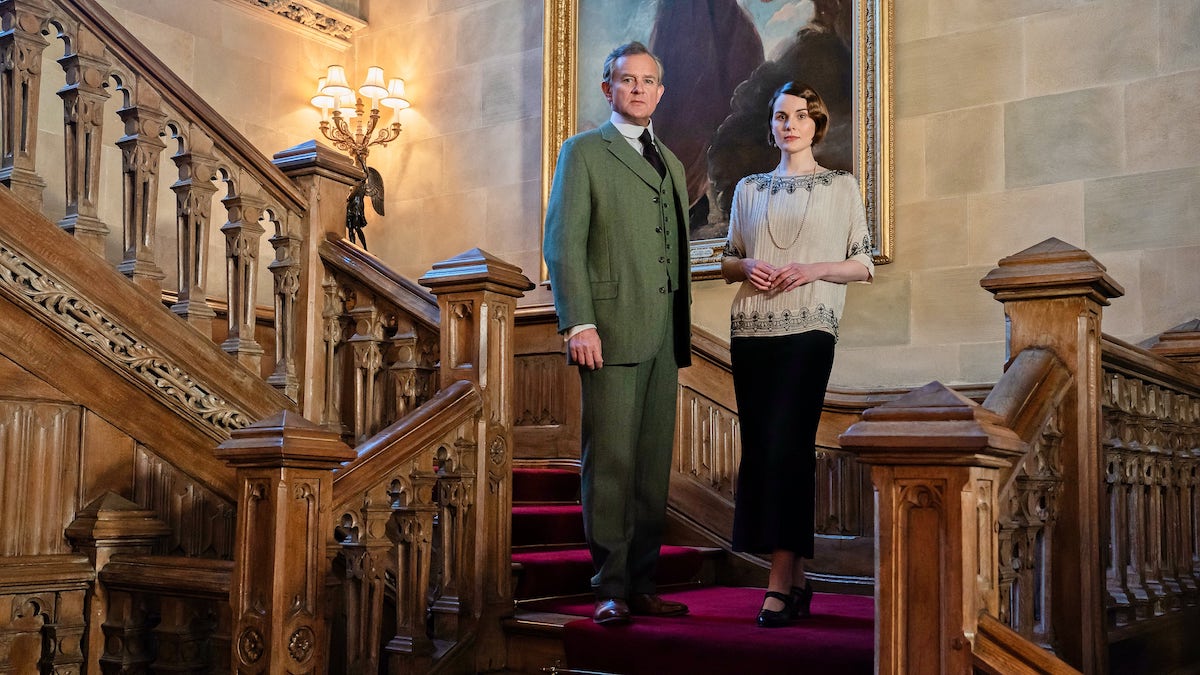
There are clear references here both to Singin’ in the Rain (1952), which also dealt with the painful aspects of the silent-to-sound shift, and to Robert Altman’s Gosford Park (2001)—which, like Downton Abbey: A New Era, was set in an English country house between the wars, featured visiting filmmakers, and was written by Downton’s creator Julian Fellowes. (Indeed, Downton the series was originally conceived as a direct follow-up to the Altman film.) Michelle Dockery, who plays a key role both in Downton Abbey: A New Era and in the making of the film-within-a-film, has said that the latter was also inspired by the history behind Alfred Hitchcock’s Blackmail (1929).
This glimpse of the early cinema world was enhanced for me, incidentally, by two characters’ brief visit to the Electric Palace in Harwich, Essex, where I worked for many years as a house manager and film programmer, and which has recently reopened after restoration, is roughly equal in importance to the other main thread of the storyline taking place in France.
The Dowager Countess of Grantham (Maggie Smith) learns that she’s the owner of a villa on the Mediterranean coast, and several members of the household set off to take possession of it; the real interest, however, lies not in the practical question of what they’ll do with it now but in the mystery of why the Dowager was gifted it by a Frenchman in the first place, and what this might imply for others in her family.
Downton Abbey: A New Era is a markedly better movie 2019’s big-screen outing, free of anything as far-fetched as a royal assassination attempt, less overtly comic, and much less reliant on pre-existing affection for the characters. The film production storyline in particular is inherently interesting enough to stand on its own even for those unfamiliar with Downton, with much technical detail, presumably reasonably accurate, as a bonus.
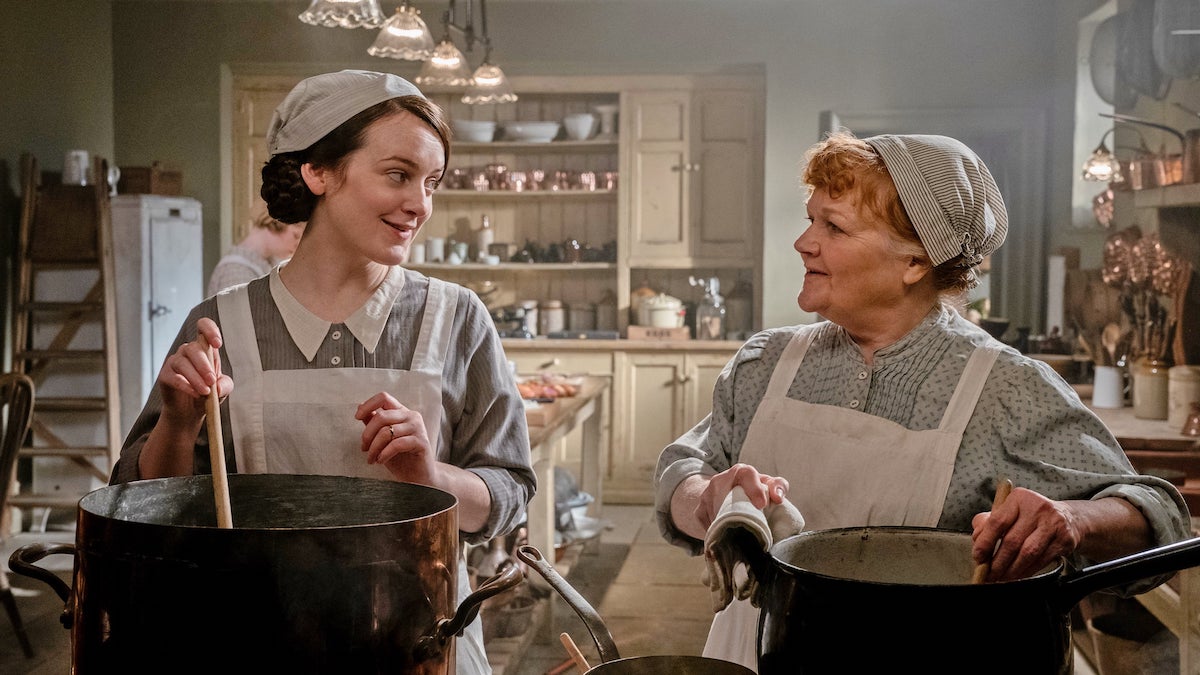
The production merits of A New Era are everything you would expect: lush locations, scrupulous attention to detail, and (as with the previous film and series) a score by John Lunn which isn’t a pastiche, but still captures so well the bittersweet, uncertain poignancy of the period’s English classical music that it’s rather a surprise to find he’s a fan of John Cage and György Ligeti.
Director Simon Curtis is rightly not at all flashy—his main job here is marshalling his considerable forces (human and otherwise) and letting them speak for themselves, but he does it capably, aided no doubt by his ample period drama experience with the BBC (the David Copperfield and Twenty Thousand Streets Under the Sky miniseries as well as episodes of Cranford).
The real joy, though, is the cast. The majority of the Downton regulars are here (Matthew Goode’s Henry Talbot is the biggest omission) and they’re consistently impressive; true, the characters are all slightly caricatured, but there’s barely a case where the actor doesn’t manage to invest the caricature with credibility.
Smith’s Dowager Countess gets many of the prized one-liners, of course, and acts like a woman entitled to nothing less. Elsewhere, above stairs, Elizabeth McGovern’s Lady Grantham is nuanced and affecting, with her arc in some ways the opposite of Dockery’s as Lady Mary Talbot. They don’t demand the limelight the way Smith does but they’re more complex personalities, and in their different ways all three women illuminate aspects of the film’s theme of transition. Hugh Bonneville’s Earl of Grantham, meanwhile, is at his best in scenes with his wife McGovern.
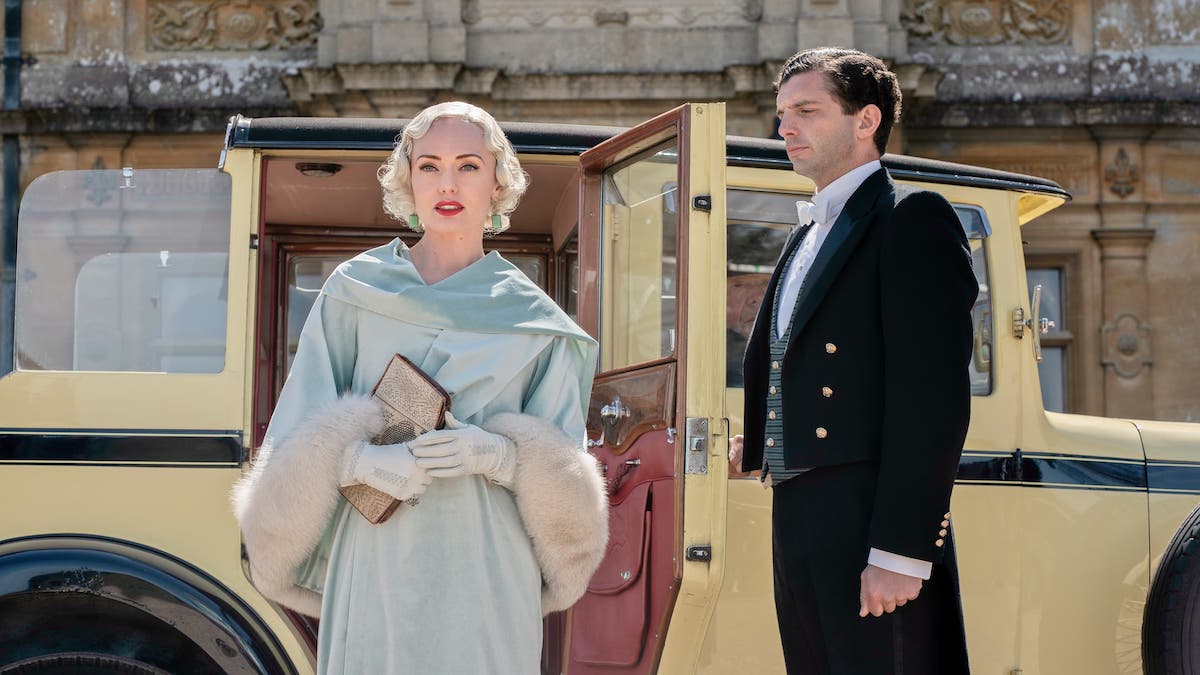
The filmmakers visiting Downton are, of course, all newcomers to its world. Hugh Dancy’s director is likeable, if the tiniest bit bland, and Laura Haddock is striking as their picture’s leading lady even if the script doesn’t allow her much subtlety, but it’s Dominic West’s leading man—surely intended to recall the Clark Gable of a few years later?—who stands out the most, as capable as Smith of stealing a moment. A late development involving him and one of the house’s staff perhaps doesn’t wholly convince but it’s a minor flaw.
Among the smaller roles, Jonathan Zaccaï as Monsieur Montmirail, the Downton expedition’s host at the French villa, is far more interesting than Philippe Spall’s ridiculous comedy French chef in 2019. In the new film, the humour is always sympathetic and never cruel, coming especially from Jim Carter as retired butler Mr Carson, Alex Macqueen as the movie crew’s pedantic sound engineer Mr Stubbins, and Kevin Doyle as the servant-turned-schoolteacher Molesley, the last delivering some emotional heft too.
Films like this are often assumed to be nostalgic, and indeed they are in a way. Their appeal is nothing like the appeal of costume dramas set in, say, the Tudor period, where marvelling at the differences is the point. Instead, they find delight in the minutiae of a world that’s distant enough to seem amusingly old-fashioned while still close enough to be recognisably related to ours.
Yet it’s not nostalgia for that specific world in a literal sense, and (though this is a common criticism) nor is it for class division as such, or for people “knowing their place”. Indeed, such films also tend to delight in challenges to the class system, and are just as genuinely concerned with those below stairs as with those above.
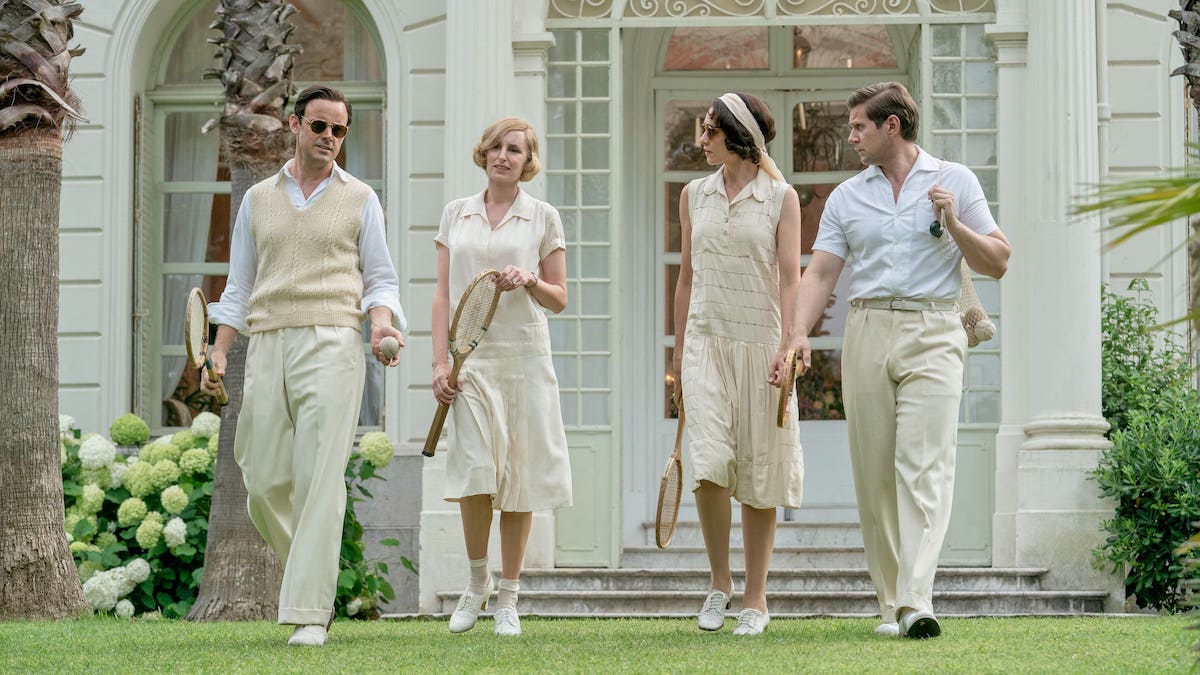
Rather, they resonate in the way traditional westerns did with traditional American audiences: their nostalgia is for an idea of the English spirit, characterised above all by resilience, which their audiences either mourn the end of or hope still exists, and which has its apotheosis in the myths of the Blitz.
Change is fundamental to them, then. They aren’t purely about stasis, even if they might look that way at a glance. They’re about adapting to survive change: social, political, familial, and so on. In Downton Abbey: A New Era, for instance, it’s obvious the essentially late Victorian/Edwardian lifestyle of Downton is becoming more and more separated from the “real” world, and that it cannot last.
The temptation to follow this up by taking the tale into Word War II must be almost irresistible, and if there is a third Downton Abbey film, it’ll be fascinating to see whether it realistically embraces the prospect of much greater disruption—could the Abbey itself be sold? Demolished? Donated to the National Trust to avoid death duties?
In the meantime, while Downton Abbey: A New Era is a thoroughly entertaining film which could certainly be enjoyed simply as nostalgia porn by those so inclined, it’s more thoughtful about the inevitability of change than its veneer might suggest.
UK • USA | 2022 | 125 MINUTES | COLOUR | ENGLISH • FRENCH

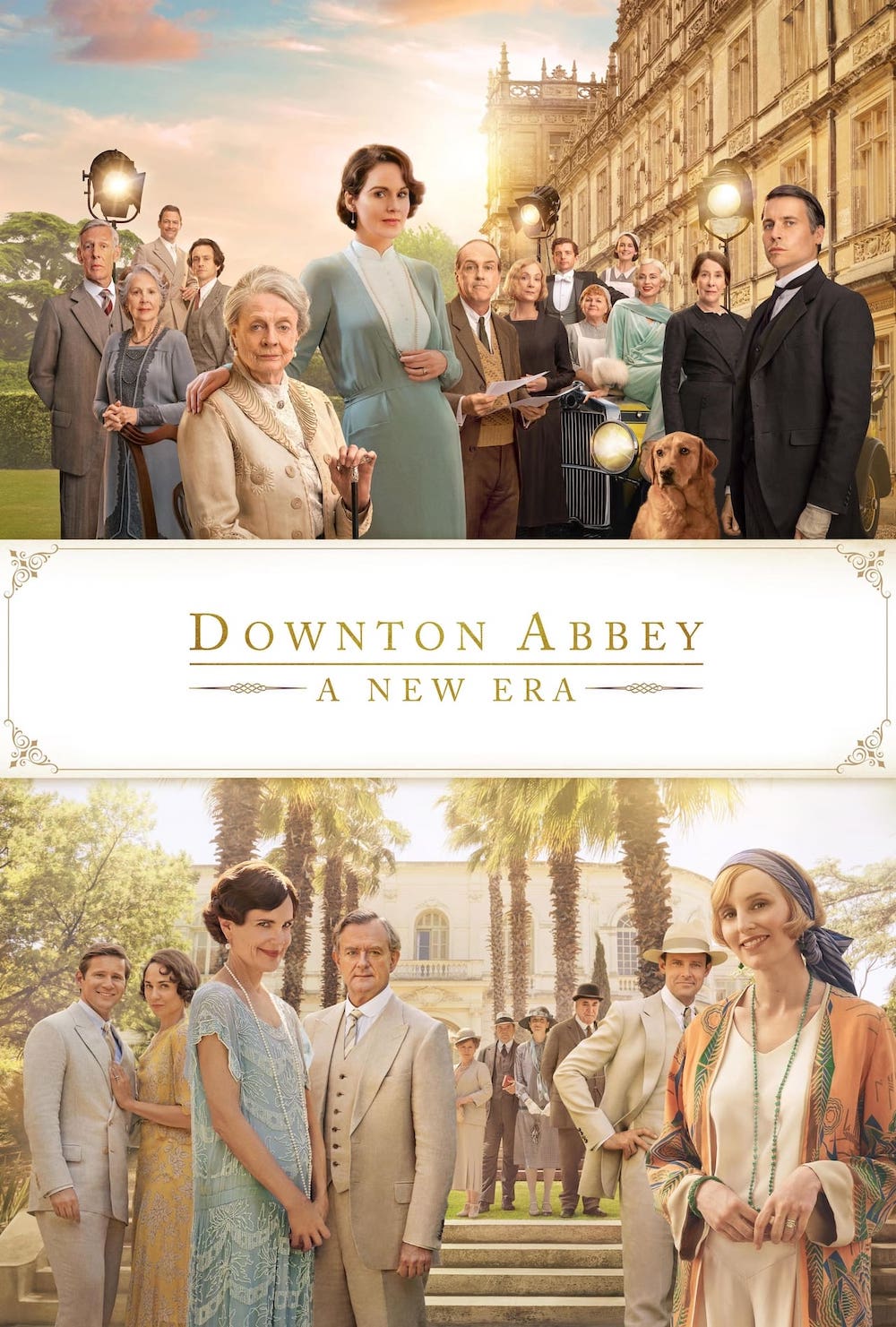
director: Simon Curtis.
writer: Julian Fellowes.
starring: Hugh Bonneville, Elizabeth McGovern, Hugh Dancy, Laura Haddock, Dominic West, Robert James-Collier, Maggie Smith, Laura Carmichael, Jim Carter, Michelle Dockery, Kevin Doyle, Allen Leech, Tuppence Middleton, Imelda Staunton, Penelope Wilton & Jonathan Zaccaï.
